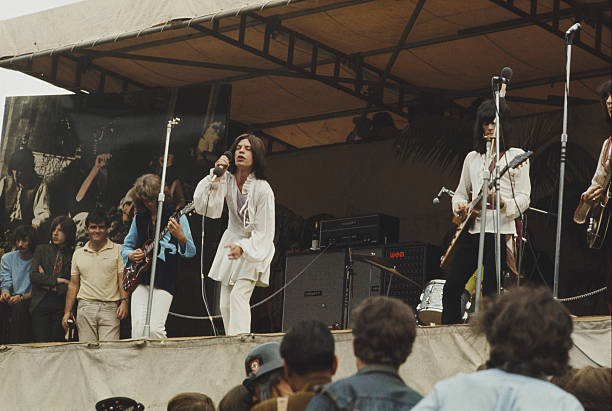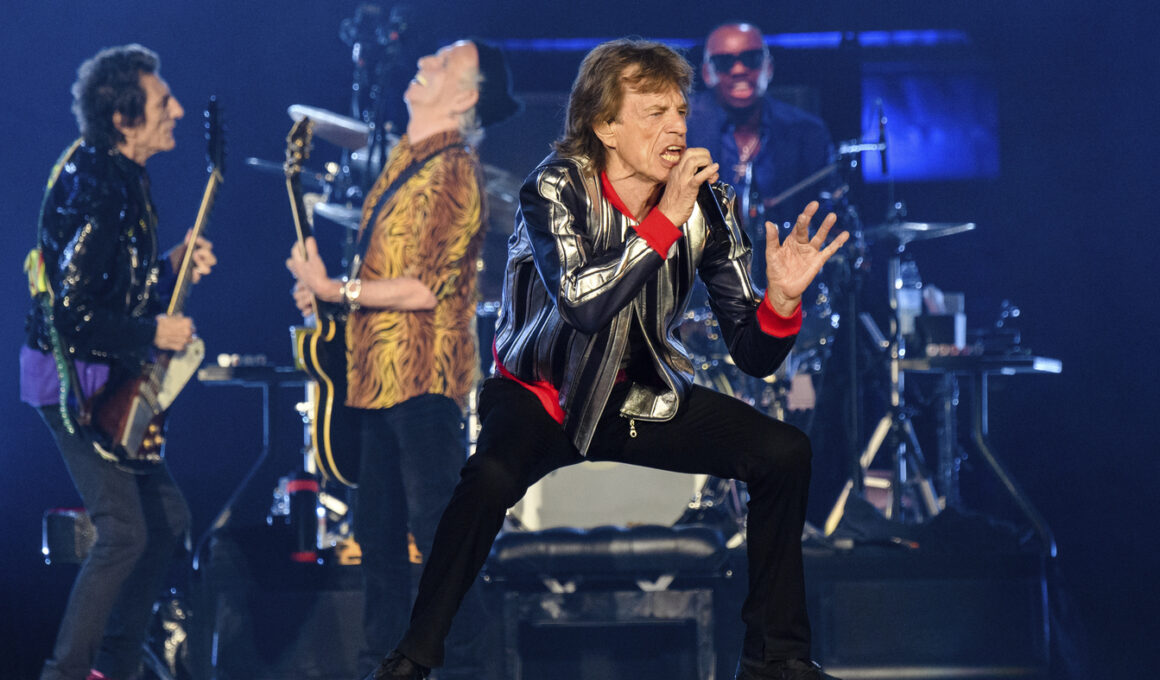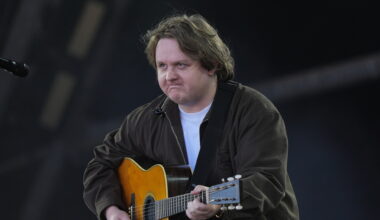Honky Tonk Resurrection: The Rolling Stones Electrify Hyde Park in a Performance Born from Grief
On July 5, 1969, The Rolling Stones took the stage at London’s Hyde Park for a concert that would become one of the most historic performances in rock history. What was originally intended as a reintroduction of the band to the public after a two-year hiatus quickly turned into an emotional tribute to founding member Brian Jones, who had died just two days earlier. Amid this heartbreak, the Stones debuted one of their soon-to-be signature songs: “Honky Tonk Women.”

This Hyde Park performance didn’t just premiere a new sound—it transformed sorrow into swagger, launching a new chapter in the band’s journey.
The Tragic Backdrop
Two days before the concert, the band’s original guitarist and co-founder, Brian Jones, was found dead in his swimming pool at the age of 27. Grief-stricken yet determined to move forward, the Stones decided not to cancel the show. Instead, they turned the event into a public memorial.

Before the music even began, Mick Jagger read a poem by Percy Bysshe Shelley and thousands of white butterflies were released into the sky. The moment was deeply poetic—beautiful and devastating at once—and set the emotional tone for the night.
A Song Reborn

“Honky Tonk Women” had just been recorded a few weeks earlier and released as a single the day before the concert. Originally conceived during a trip to Brazil as a slower country song (later released as “Country Honk”), the final version of “Honky Tonk Women” was a bold, bluesy number powered by Jimmy Miller’s unmistakable cowbell and Keith Richards’ growling guitar riff.
The Hyde Park rendition was the first time the song was ever played live, and it arrived like a jolt of electricity. It was raw, unpolished, and brimming with energy—everything the Stones were best at delivering.
Mick Taylor’s First Ride

The Hyde Park concert also marked the debut of guitarist Mick Taylor, who had recently replaced Jones. It was a trial by fire, but Taylor fit seamlessly into the band’s evolving sound. His slide guitar work added depth and fluidity to the band’s blues-rock edge, and “Honky Tonk Women” became a perfect vehicle for his talents.
Taylor’s chemistry with Richards would become a defining element of the Stones’ early 1970s era, but here, in Hyde Park, we witness the very first sparks.
The Performance

The performance of “Honky Tonk Women” that day is as iconic for its imperfections as it is for its power. Jagger’s vocals teeter between playful and ferocious. Richards, Taylor, and bassist Bill Wyman lock into a groove that feels loose but magnetic. Charlie Watts, ever the quiet force behind the band, keeps everything grounded.
With a crowd of over 250,000 people watching, this was more than just a concert—it was a cultural moment. The band wasn’t polished, but they were alive, urgent, and real. Their music wasn’t just entertainment—it was catharsis.
A Legacy in Motion

The Hyde Park performance of “Honky Tonk Women” is now seen as one of the great live moments in rock history. The song would go on to top charts in both the UK and the US and become a staple of Stones concerts for decades. But its live birth in Hyde Park is what gives it mythic weight.
This wasn’t just the unveiling of a new hit—it was the rebirth of a band.
From grief to groove, from butterflies to blues riffs, The Rolling Stones showed the world that rock and roll could carry the full weight of human emotion. And “Honky Tonk Women” was the battle cry of that resurrection.
Watch below:





